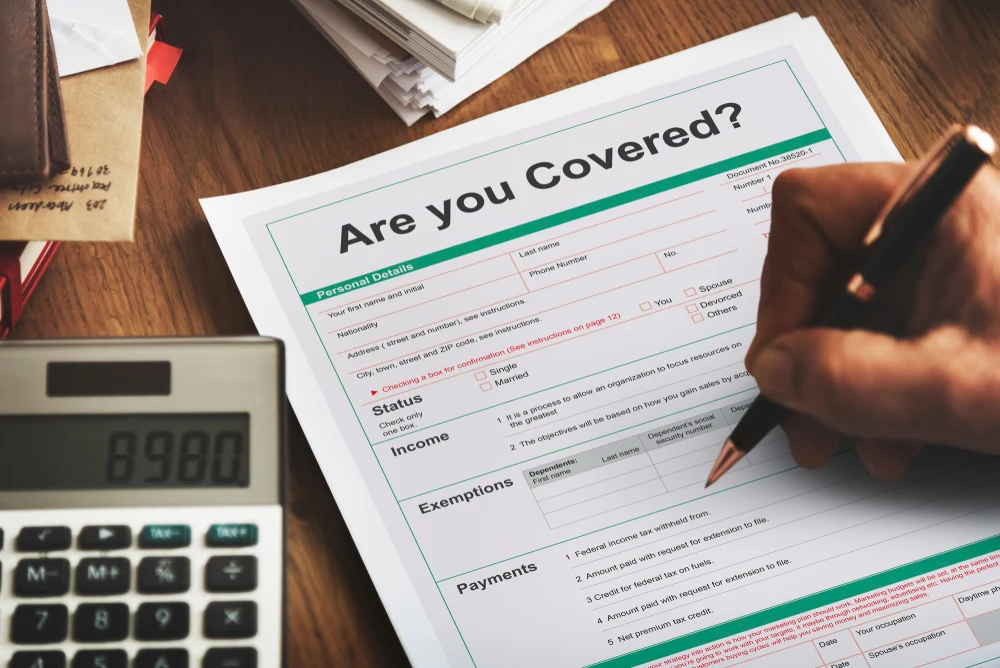
Healthcare can be like a big confusing maze with lots of turns and choices. But among all the confusion, there’s one decision that stands out: getting health insurance. It’s not about how old you are or how much money you have; it’s about making sure you don’t have to worry about paying crazy bills when you get sick. But for many of us, getting health insurance seems like a tricky puzzle.
In this blog, we’ll take you on a journey through the world of health insurance, breaking down the complicated stuff and making it easy to understand. By the time you’re done reading, you’ll be ready to make smart choices about your healthcare without feeling lost.
Why Should You Consider Getting Health Insurance?
You have to understand that getting health insurance isn’t just another bill to pay or paperwork to fill out. It’s a critical investment in your well-being and financial security. In a world filled with uncertainties, where accidents and illnesses can happen when you least expect them, getting health insurance can be a lifeline. Here are some reasons why you should get one:
- Access to Quality Healthcare
Health insurance is like your VIP pass to quality healthcare. It opens doors to a network of doctors, specialists, and hospitals. You get to choose the healthcare providers you trust. This access means you can get the care you need when you need it, from timely treatments to important preventive check-ups, all contributing to a healthier and happier you.
- Peace of Mind
Worrying about how to pay for medical expenses is incredibly stressful. Getting Health insurance offers peace of mind. It means you’re prepared for unexpected health issues. You can go about your daily life with confidence, knowing that you have a financial safety cushion in place.
- Preventive Care
Health insurance often covers preventive services at little to no cost. Think vaccinations, screenings, and wellness check-ups. These services catch health problems early, making them easier and cheaper to treat. Your health insurance encourages you to prioritize preventive care, ultimately leading to a longer, healthier life.
- Family Protection
Health insurance isn’t just about you; it’s about your family’s well-being too. When you have health insurance, you ensure that your loved ones can access medical care when they need it most. It’s a way of safeguarding their health and financial stability, providing you with peace of mind as a caregiver.
- Legal Requirements
In some places, having health insurance is the law. Not having coverage can lead to penalties and fines. So, it’s crucial to check your local regulations to make sure you’re in compliance.
- Employment Benefits
Many employers offer health insurance as part of their benefits package. When you enroll in your employer’s plan, you not only protect your health but also take advantage of cost-sharing arrangements. This can make health insurance more affordable, so you get the coverage you need without breaking the bank.
- Financial Flexibility
With health insurance, you gain better control over your budget. You know what your monthly premium is, allowing you to plan for other expenses without the fear of unexpected medical bills derailing your finances. It’s financial stability in an unpredictable world.
What Are the Steps in Getting Health Insurance?

1. Assess Your Needs
The first step is to understand your healthcare requirements. Consider your age, health condition, family size, and budget. Think about what kind of coverage you need, from routine check-ups to specific medical conditions. This assessment will guide you in selecting the right health insurance plan.
2. Research Available Plans
Getting Health insurance comes in various forms, such as Health Maintenance Organizations (HMOs), Preferred Provider Organizations (PPOs), and Exclusive Provider Organizations (EPOs). Research the benefits, premiums, deductibles, and out-of-pocket costs associated with each plan. Most insurance providers offer detailed information on their websites or through customer service representatives.
3. Consider Government Programs
Depending on your income and circumstances, you may qualify for government-funded health insurance programs like Medicaid or Medicare. These programs provide coverage for low-income individuals, seniors, and those with specific disabilities. Check your eligibility and explore these options before considering private insurance.
4. Choose an Insurance Provider
After assessing your needs and researching available plans, it’s time to select an insurance provider. Look for a reputable company with a strong customer service track record. Read reviews, seek recommendations from friends and family, and ensure the provider is financially stable.
5. Select a Plan
Choose a plan that aligns with your healthcare needs and budget. Pay attention to:
- Premiums: The monthly cost of your insurance.
- Deductibles: The amount you must pay out of pocket before your coverage kicks in.
- Copayments and Coinsurance: Your share of the costs for medical services.
- Coverage: Ensure the plan covers your preferred doctors, specialists, and hospitals.
- Prescription Drug Coverage: Evaluate the plan’s coverage for medications you may need.
6. Enroll in the Plan
Once you’ve made your decision, enroll in the health insurance plan of your choice. Enrollment can usually be done online, over the phone, or in person. Be prepared to provide personal information and any necessary documentation, such as proof of income or citizenship.
7. Pay Your Premiums
To maintain your coverage, ensure you pay your monthly premiums on time. Familiarize yourself with the payment schedule and accepted methods of payment provided by your insurance provider.
8. Understand Your Benefits
Take the time to fully understand your insurance benefits. Learn how to file claims, access a list of in-network healthcare providers, and understand how your coverage works in various healthcare scenarios. Being informed empowers you to make the most of your health insurance.
What to Expect When Getting Health Insurance
Getting health insurance may seem complicated, but it shouldn’t be. If it’s your first time applying for one, we’re here to walk you through what you can expect as you take a step toward financial security and improved well-being. Once you’ve gathered the necessary information and selected your ideal health insurance plan, you’ll enter the application phase.
Here’s what you can anticipate during this process:
- Verification and Confirmation: After submitting your application, the insurance provider will verify the information you provided. This may include confirming your identity, household details, and eligibility for specific programs or subsidies.
- Application Processing Time: The time it takes to process your application can vary. Some insurance providers offer instant approval, while others may take several weeks to review and finalize your application. During this period, it’s crucial to be patient.
- Communication: You can expect communication from the insurance provider regarding the status of your application. This may come in the form of emails, physical mail, or online notifications. It’s essential to check your preferred method of communication regularly.
- Enrollment Confirmation: Once your application is approved, you’ll receive enrollment confirmation. This document will provide details about your coverage, including effective dates, premiums, and any additional information you need to know.
- Premium Payment: To activate your health insurance coverage, you’ll need to make premium payments. These payments are typically due on a monthly basis, and the insurance provider will specify the due dates and accepted payment methods.
- Welcome Packet: Many insurance providers send a welcome packet to new policyholders. This packet often includes essential information about your plan, such as your insurance card, a list of in-network providers, and instructions on how to access benefits and services.
- Member Portal Access: Insurance providers often offer online member portals where you can manage your policy, access important documents, and review claims. You’ll typically receive information on how to set up and use these online tools.
- Customer Support: Throughout your insurance journey, you can expect customer support assistance. Whether you have questions about your coverage, need help with a claim, or require assistance in finding an in-network provider, customer service representatives are there to assist you.
Conclusion
Health insurance isn’t just a financial obligation; it’s an investment in your health and future. It offers protection, access to quality care, and peace of mind in an unpredictable world. So, if you’ve ever wondered whether you should be getting health insurance, the answer is a resounding yes. It’s a decision that can positively impact your life, ensuring that you and your loved ones are covered when health challenges arise.
If you want to learn more about health insurance, feel free to reach out to Alliance Health Group. We are an independent health insurance broker dedicated to helping individuals and families navigate the complex world of healthcare coverage. Contact us today!

